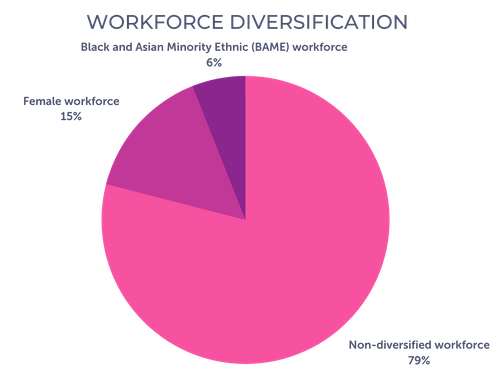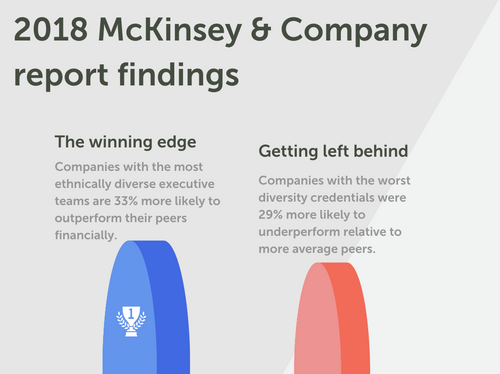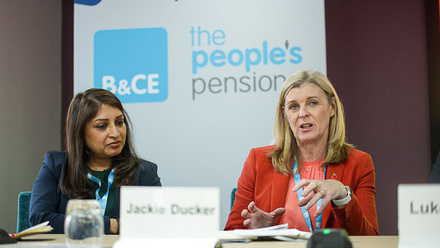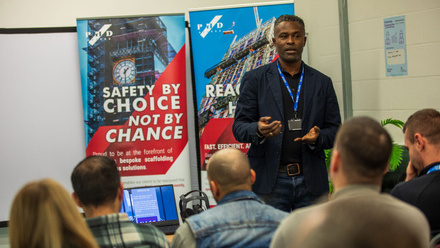When it comes to Equality, Diversity and Inclusion (EDI), the construction industry lags behind others in attracting and retaining the people it needs to deliver high quality work, in an age where it will soon be needed more than ever. What is the scale of the challenge we face if we want overturn this narrative, and what are the benefits of assembling a well-diversified workforce?
EDI remains a significant challenge in UK construction

According to the Chartered Institute of Building (CIOB), women make up just 15% of the UK building industry, and only 2% of onsite workforces. What’s more, Black and Asian Minority Ethnic (BAME) and disabled employees each make up just 6% of the workforce respectively, and the majority (60%) of LGBTQ+ employees reporting experiences of homophobic / derogatory language being used in the workplace.
Redshift cite similarly concerning stats, with 51% of LGBTQ+ UK construction employees stating that their sexual orientation had held them back in the careers, and only 7% willing to recommend the industry to new recruits.
Against this background, it’s clear that the construction industry needs to make changes if it is to cultivate a more diversified workforce and enable employers to meet their obligations under the 2010 UK Equality Act.
What are the benefits of a diversified workforce?

So what do we stand to gain from introducing more inclusivity to our teams? The CIOB highlights several key benefits to having a well-diversified workforce.
Diversity can bring a different perspective and fresh ideas. It also means your business is representative of the wider community, which can help to reach and win new business as clients can see themselves reflected in your business, as well as foster better working relationships with partners and suppliers. Offering an inclusive working environment can also help with recruiting staff from a wider pool of talent, so those vacancies don't go unfilled.
The CIOB also point to findings from a 2018 report by McKinsey & Company which show positive correlations between various diversity metrics and financial performance in businesses across the world. Amongst the key insights were:
- Gender diversity on executive teams is strongly correlated with enhanced profitability.
- Ethnic diversity in the executive team and at Board level also correlates with better odds of financial success.
- Companies with the most ethnically diverse executive teams are 33% more likely to outperform their peers financially.
- Companies with the worst diversity credentials were 29% more likely to underperform relative to more average peers.
McKinsey & Company reason that the improved profitability metrics observed in correlation with greater diversity are driven by companies’ enhanced abilities to attract and retain top talent, improve customer-relations and make better strategic decisions.
In fact, since 1990, a wealth of research has been published indicating that a healthy approach to EDI can provide significant benefits to businesses seeking to grow and outcompete their peers.
How do I cultivate a more diversified workplace?

According to McKinsey & Company, one of the best ways to promote better EDI is to demonstrate support from the very top – starting with the Managing Director or CEO with a continued commitment made throughout the management structure. Publicly announcing company policies advocating for a more diversified workforce, leading by example in hiring practices for senior positions and subsequently holding line managers accountable for their hiring practices can go a long way to changing everybody’s outlook.
Of course, it’s also important to ensure words of encouragement are backed with sufficient resources, and offering competitive salary packages is key to securing more EDI employees. Once staff have joined the company, empowering them with decision-making responsibilities can help them feel that they have a real stake in the business’s direction, and make them more likely to commit long term.
Aligning EDI recruitment plans closely with a growth strategy for your business is another great way to drive sustainable change. When you can identify the roles which are going to be crucial in building your business in the years ahead, you can offer prospective new hires a fulfilling career choice that will integrate fully into the wider team.
Recruitment strategies to promote better EDI
Yvonne Howard, Diversity & Inclusion Consultant at EW Group offers the following tips for those seeking to optimise their recruitment processes for better EDI:
- Make a conscious effort to write job adverts which are inclusive, and invite people from all backgrounds, genders, ethnicities and abilities to join your company.
- Build working relationships with recruitment agencies which themselves draw on diverse talent pools.
- Consider applications from those who might not have the specific experience in roles you are recruiting for but have transferrable skills from working elsewhere on or around site, with a positive attitude towards learning and growing as a professional.
For smaller businesses looking to improve without committing resources to a major EDI audit, you can make a start by noting down the areas you feel you are doing well with, and talking to your staff about areas where you could improve. With these in place, try setting some achievable targets or issuing simple guidelines to take the next step in your EDI journey.
Tackling obstacles to EDI in the workplace
Mott Macdonald EDI Manager Richard Chapman-Harris advocates for measures to actively address obstacles to EDI in the workplace.
These measures include Unconscious Bias Training, which aims to make employees aware of the assumptions they are making unintentionally and how these can lead us to jump to inaccurate and potentially hurtful conclusions about colleagues. When implemented properly, it’s thought that this kind of training can help to shift behaviours and attitudes and improve companies’ hiring practices and client relations. Training courses are abundantly available online, with organisations such as the Diversity Trust offering discounted rates for SME enrolments.

Chapman-Harris also recommends the practice of Reverse-Mentoring; where more junior members of staff are paired with their seniors and encouraged to share their perspectives on the challenges they face coming into the workplace. This approach, he contends has proven particularly useful for employees from disabled, Black and Minority Ethnicity (BAME), and / or LGBTQ+ backgrounds, helping to inform leaders’ approaches to helping candidates from a minority background with their career progression.
Dedicated EDI networks can also serve as a source of information and support for those wishing to build a more inclusive workforce. Organisations like the National Housing Federation’s National CEO Network on Equality, Diversity and Inclusion and National Network for Equality, Diversity and Inclusion Professionals meet regularly to hear from experts on how to drive better EDI outcomes, and to discuss challenges faced by those in attendance. Setting aside time and resources specifically for EDI support networks can also signal to the rest of your business that you are serious about tackling the challenge, and willing to invest in finding solutions.
Some of these measures undoubtedly depend on effective execution in order to be effective, but Chapman-Harris has seen the results in his company, where 81% of UK staff feel that their colleagues take EDI seriously and 72% say EDI policies are effectively implemented.
Find support for better EDI in your workforce
The construction industry’s Fairness, Inclusion and Respect (FIR) programme provides free, industry-endorsed training and resources, guidance and materials, to support businesses to be more innovative and profitable by addressing workplace culture challenges, and help attract and retain people from more diverse talent pools.
Their Construction Leadership Council (CLC)-endorsed annual research and impact evaluation report provides insights into how the industry is progressing with regards to improving EDI outcomes.
They also offer workshops for wishing to improve their understanding of EDI best practices.
Want more on EDI?
Diversity and inclusion formed part of the agenda at the 2022 FMB Building Conference. To hear from guest speakers from YouthBuild Ventures UK, the CITB, Master Builder firm Lowry Building and Civil Engineering, BPIC Network and the CIOB on the topic of Empowering people - discussion on skills, diversity & inclusion, check out the resource below:







